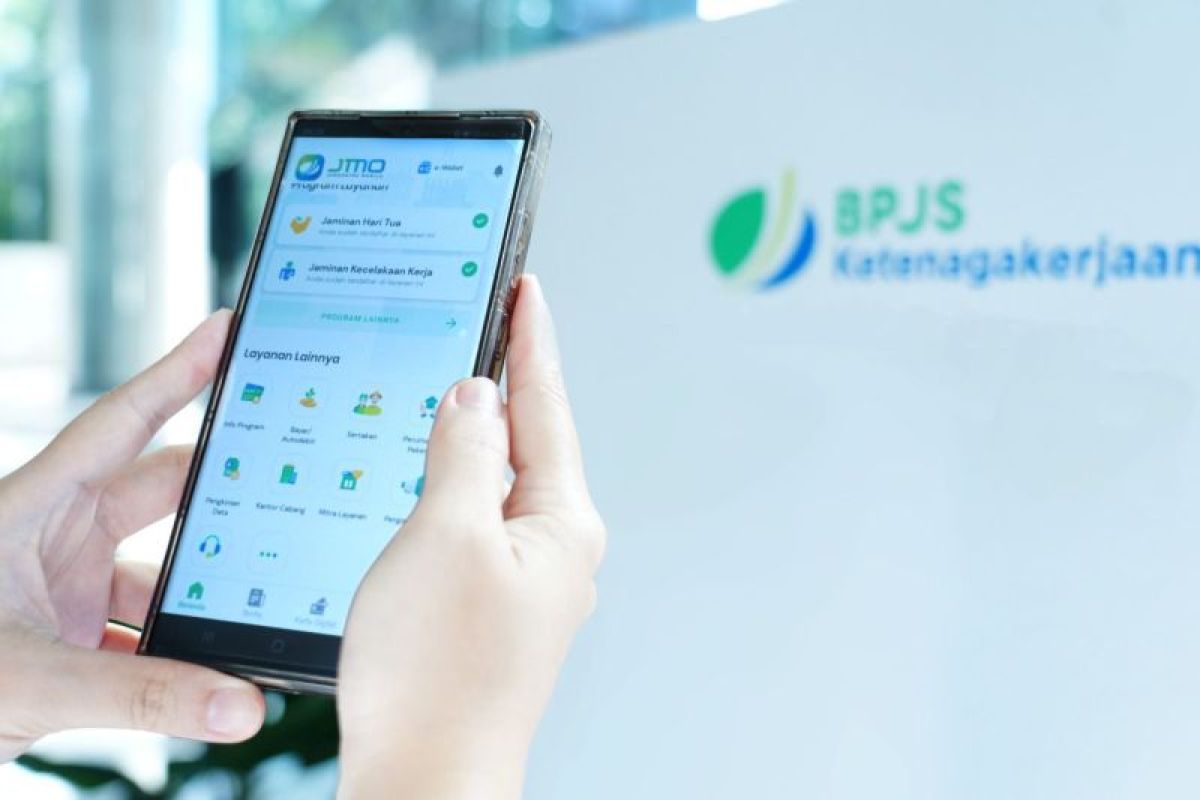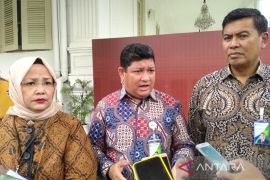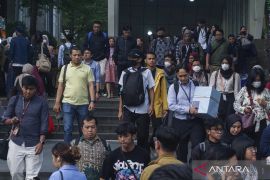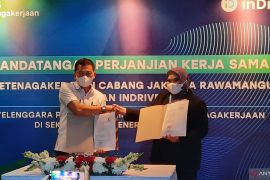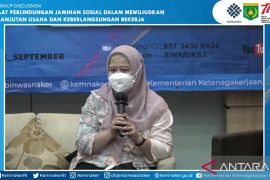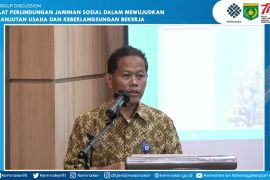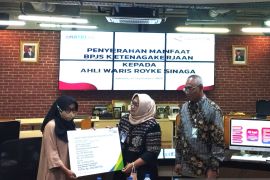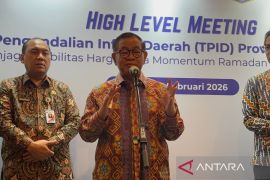Head of the Development and Information Agency (BPI) for Villages and Underdeveloped Areas at the Ministry of Village and Development of Disadvantaged Regions (Kemendes PDT) Mulyadin Malik stated that the social security system managed by BPJS Ketenagakerjaan can support workers at the village level, especially those in vulnerable groups, such as small farmers, fishermen, and laborers.
"This includes villages at high risk. In Indonesia, villages are categorized as very underdeveloped, underdeveloped, developing, and independent. Therefore, in the very underdeveloped areas, BPJS Ketenagakerjaan is critically important," he elaborated.
He particularly referred to the Work Accident Insurance (JKK), Death Insurance (JKM), and Old Age Insurance (JHT) programs, which provide protection to prevent these vulnerable workers from falling into poverty.
Kemendes PDT had earlier collaborated with BPJS Ketenagakerjaan to provide work protection for village residents, which was formalized in 2024.
To support this expansion, Mulyadin said Kemendes PDT would push for regulations, such as technical guidelines, to ensure villages prioritize social protection for vulnerable workers by including social security in their planning.
"This could later be included in the Village Government Work Plan (LKPDes) and the annual Village Budget (APBDes). Also, it is important to focus on education. We need to educate and raise awareness about social security. We can at least jointly promote the importance of labor protection and data integration to village governments and the community, particularly for vulnerable workers in villages," he stated.
This step aligns with the poverty alleviation target outlined in Presidential Instruction No. 8 of 2025 on the Optimization of Poverty Alleviation and Extreme Poverty Eradication, which encourages expanding the coverage of the social security program for workers in the poor and extremely poor categories.
Similarly, Ippei Tsuruga, the Social Protection Program Manager for Indonesia at the International Labour Organization (ILO), stated that social security can serve as a safety net to prevent vulnerable workers from falling into poverty.
He stressed the importance of implementing such programs as a foundation for long-term poverty alleviation goals, especially for vulnerable workers and the elderly. This includes revising Law No. 40 of 2004 on the National Social Security System (SJSN), especially regarding Pension Insurance (JP).
This revision is crucial to address the issue of individuals with disabilities and the elderly being downgraded to the poor or extremely poor category after they no longer receive benefits from JKK, JKM, or JHT.
"From the ILO’s perspective, I believe that revising the SJSN is very important and should be finalized within the next five years to meet the 2045 poverty alleviation and outreach targets," Tsuruga remarked.
In a separate statement, Trubus Rahardiansyah, a public policy analyst from Trisakti University, stated that the social protection policy instruments for vulnerable workers are beneficial.
However, he observed that implementation has not been optimal.
He noted that protection for non-wage workers, those with partner status, such as online drivers, and those in rural areas had yet to be maximized.
"In my opinion, what needs improvement is governance to ensure they are included because the government often faces competing interests between investors or businesses and workers," he explained.
Hence, he called for better synergy between ministries/agencies (K/L) to ensure that the social protection safety net managed by BPJS Ketenagakerjaan reaches all categories of workers, including those in rural areas.
Coordinating Minister for Community Empowerment Muhaimin Iskandar had earlier stated that inter-sectoral synergy between ministries and agencies is key to alleviating poverty and eradicating extreme poverty.
This aligns with the target of reducing extreme poverty to zero percent by 2026, involving 17 K/L leaders.
Iskandar emphasized that local governments, down to the village level, have a responsibility to ensure that policies and budgeting are in place for vulnerable workers and those in extreme poverty categories.
The minister confirmed that the use of APBDes could support protection.
"This statement will demonstrate that the state is actively involved in providing social security protection to safeguard the most vulnerable members of society," Iskandar stated.
"Going forward, including the poorest in the villages, at least 100 of the most vulnerable, the extremely poor, and their work will be protected, ensuring that even informal workers will have proper protection," he affirmed.
Related news: BPJS targets social insurance cover for 57 mln workers in 2025
Related news: Minister introduces lifelong social security programs for public
Translator: Prisca, Azis Kurmala
Editor: Primayanti
Copyright © ANTARA 2025
